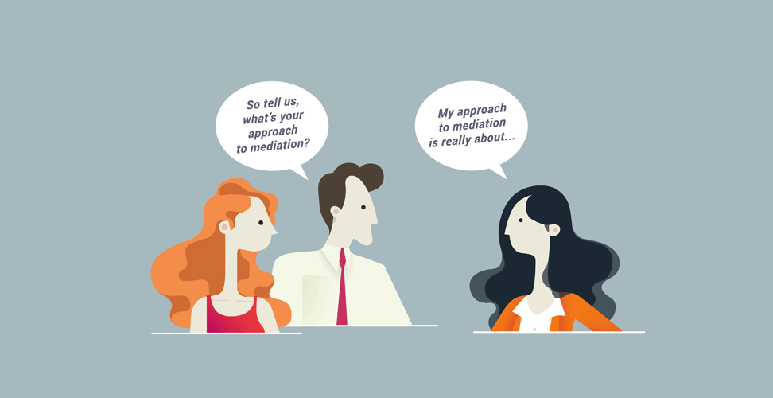You Don't Just Need a Mediator, You Need the RIGHT Mediator

Not just a mediator. The RIGHT mediator.
The mediator handling your dispute will play a critical role in its outcome; his/her skill and personality will factor significantly into how comfortable you are, how well you and the other party will work together, and how quickly you find a workable solution.
If you truly want the best possible outcome of your dispute and settle it out of court, you and the other hiring party should put considerable time and effort into choosing the right mediator for your case.
Criteria
While conducting your search for a mediator, pay special attention to these criteria:
Experience
How many cases has the mediator handled? How many were similar to your case? Where did the mediator receive training? Does the mediator hold a certification of any kind (and what, if any, are required in your state)? Does the mediator attend or participate in conferences to stay up-to-date and relevant in the industry? To what mediation organizations does the mediator belong and/or volunteer for?
Expertise
Does your case need a mediator with knowledge of a certain industry or area? If so, how much knowledge – do you need a subject matter expert or will general knowledge suffice? Ask for mediator references from within the relevant industry, and be prepared to pay higher fees for specialized knowledge.
Philosophy and approach
Do you want your mediator to share their personal opinions (evaluative mediation)? Keep all parties talking (facilitative mediation)? Are you interested in maintaining a relationship with the other party (transformative mediation)? Take note of how the mediator describes their process, then consider what that would look like when applied to your case.
Other relevant matters
Do you need a lawyer-mediator or a non-lawyer-mediator? What is the fee for the mediator’s services, and exactly what does the fee include? Is the mediator available to take your case?
Additional tips
One or two sessions
Typically, two-party mediation cases are usually resolved in one or two sessions. If your case involves multiple complex issues (e.g., a divorce deciding child custody and visitation and alimony and property division) or several parties (e.g., a neighborhood or community dispute), it will likely take longer to resolve.
Get a consultation
It is important that you and the other party both speak with candidates before making a final choice of mediator. Make a list of a few mutually acceptable candidates and contact them directly. You both need to have a good impression of the candidate’s ability to communicate and his/her professionalism. You must feel comfortable talking with this person, and entrusting him/her to guide you through a difficult process. Many mediators offer a free consultation – take advantage of this offer, either on the phone or in person.
Neutrality
By definition, mediators are neutral third parties to your dispute; but you need to be completely confident in their ability to rise above emotions – yours and theirs. A clear, level-headed approach is needed to gently but firmly provide direction when the mediation proceedings hit a bump. If your case is especially emotional, this is particularly important.
Get started
MediatorSelect makes it easy to find the perfect mediator for your case. Search our database of the best mediators in the country, filtering by practice area, language, location, or any keyword you choose. Save your favorites and securely send them to the other party for review and comment. You first case is free, so why not get started right now?

